Just like most pregnant women, I intuitively felt that I should be eating certain foods to nourish my growing baby. I emphasise that I craved foods, not multivitamin tablets or iron supplements!
Traditional cultures from around the globe each had unique foods that were especially valued for fertility, pregnancy and breastfeeding. But in our modern culture, we’ve lost the connection with these traditions and focus instead on individual nutrients. Here's the nutrition information I most commonly hear dished out to pregnant women:
"Make sure you get enough folate or your baby will develop neural tube disorders."
"You must supplement with iron to avoid anaemia in pregnancy!"
"Take a good omega-3 supplement to support baby's brain growth."
I have no qualms with taking a decent natal multivitamin before, during and after pregnancy, and some extra nutraceuticals when and if they are required. But focusing on one little vitamin or mineral rather than the whole food from which it is sourced ignores many other nutrients, a phenomenon known as nutritionism.
Additionally, obtaining nutrients from food is far safer than getting them from supplements as this carries a lower risk of overdose and potential side effects. And there's no better time to practice kickarse nutrition than during pregnancy!
So in this article, I will focus primarily on food. The foods I discuss here and felt intuitively drawn to during my pregnancy have hundreds if not thousands of years of use in our diets. Modern science is just beginning to reveal why these foods serve such an important role in our health. I will point out which nutrients are abundant in these nutrient-dense foods and how they support foetal development and mum's health.
5 + real FOODS THAT POWERed my PREGNANCY
Star nutrients: Omega-3 fats, Choline, Folate, Biotin, Vitamins A, B, D, & E, Antioxidants, Iron, Zinc, Selenium
Firstly, make sure they're the organic kind from healthy chickens that roam around in the open air eating grass, grubs and veggie scraps, not the caged kind who never see the sun. Their eggs will have 30% more vitamin A, twice the amount of vitamin E, 2.5 times the amount of Omega-3 fat, and 3-6 times the vitamin D content than eggs from commercially-raised hens. Eggs are a great non-seafood source of DHA, a crucial omega-3 fat that is linked to higher IQ in infants.
Source your eggs from organic, grass-roaming chickens to reduce the risk of food poisoning, since organic farms have a seven-fold lower rate of Salmonella infection compared to commercial egg producers (1).
Secondly, pretty please, eat the whole egg because the gold is in the yolk! Your baby does not care for Jennifer Lopez-esque egg white smoothies. The really orange egg yolks contain a good hit of choline, which shares some of the same benefits on a developing baby as the more famous folate (or folic acid in some supplements), such as encouraging normal brain development and preventing neural tube defects.
Choline can also permanently improve your baby's lifelong memory enhancement. Studies on elderly animals have shown that good memory in old age can be attributed to their mothers eating a good amount of choline during pregnancy (2). Egg yolks also contain the antioxidants lutein and zeaxanthin, which are crucial for eye health and vision development.
If you're worried about cholesterol in egg yolks, don't be. As a growing body of research is showing, dietary cholesterol is not the villain when it comes to heart disease. Cholesterol in pregnancy is crucial for assembling sex hormones, developing the baby's brain and digestive system.
How many:
Two whole eggs a day will provide half of an expecting mum's choline requirement, which increases to 450mg per day in pregnancy. Choline also increases the uptake of the omega-3 DHA, which is also present in eggs. Nature is clever like that.
Whenever I ate a two-egg and vegetable omelette for breakfast I found I had energy to burn for far longer than if I just had oats and fruit. Omelettes are easy, filling and tasty and you can use whatever veggies and herbs you have in the fridge or growing in the garden. Eggs are great for women with gestational diabetes (GD) as they've been found to stabilise blood sugar levels when eaten for brekkie instead of something purely starchy, like toast and jam or cereal. If you're not on a strict carbohydrate counting regime for GD, add some sourdough toast and avocado to your eggs and you have a beautifully balanced meal that goes the distance!
Star nutrients: Choline, Iron, Folate, Copper, Vitamins A, D, E, K, B12, and nearly EVERY vitamin and mineral discovered so far!
If you're first reaction was "gross", I get it. Eating organ meat is not a terribly sexy thing to do in most circles. As someone who was vegetarian for seven years and vegan for two, I had to muster a LOT of courage to try liver for the first time. But I'm incredibly glad I did. But there's a nutritional reason why our grandparents (and many wild animals) ate organ meat or offal and not just muscle meat. It truly is Mother Nature's multivitamin.
Vegetarians, I vow I'm not doing this to make you sad. I've been in your shoes. I understand how horrible placing beef liver near the top of my pregnancy food list must look. But let me explain.
Liver contains iron in a highly-absorbable form, a mineral that most pregnant women desperately need more of to prevent anaemia, miscarriage, and premature delivery. I had borderline deficient iron levels at the beginning of my pregnancy (possibly due to years as a vegetarian, but I can't be sure.) By the middle of my pregnancy it had dipped even lower so I decided to take the plunge and try liver. I'm now in late third trimester and my most recent blood tests show that I managed to increase it back up to healthy levels, which I attribute at least partially to making friends with liver!
Liver is the only other major dietary source of choline, aside from eggs. It is also one of the richest food sources of folate and vitamin B12, which we need for healthy red blood cells and baby's brain development. Folate is the B vitamin famous for its role in preventing birth defects. Although most pregnant and breastfeeding women seek this vitamin from supplements, the folate obtained from food is far superior as some women are unable to use the synthetic form of folate, known as folic acid, found in supplements.
Liver is also incredibly rich in fat-soluble vitamins, including vitamins A, D, E, and K. You may have heard warnings not to consume liver during pregnancy, since it is rich in vitamin A. This myth has instilled fear in expecting mums over the years, mostly because an old study linked high-dose synthetic supplemental vitamin A to birth defects. However, more recent studies have shown that naturally occurring vitamin A does not exert this toxicity, especially when eaten with adequate vitamin D and vitamin K2, nutrients that are also found in abundance in liver (3). This illustrates perfectly why obtaining nutrients from whole foods is far safer than getting them in isolated forms in supplements.
Vitamin A deficiency is quite common in pregnant women, which is ironic given all those fears about overdosing. One study found that a third of pregnant women were borderline deficient, despite having access to plenty of vitamin A-rich foods (4). We need vitamin A for normal growth and development of many of a baby's vital organs. Of course, too much of any nutrient is not good, and since vitamin A is fat soluble we do need to be wary of the risk of toxicity, but that does not mean we should avoid liver - possibly our most valuable food source of vitamin A.
Unfortunately, plant sources of vitamin A are just not equivalent to animal sources. Plants such as sweet potato, carrots, and kale do indeed contain beta-carotene (or provitamin A, a precursor to vitamin A). Although our bodies can convert beta-carotene into true vitamin A (retinol), the conversion rate is highly variable person to person due to genetics (5) and for most people, the conversion process is not very efficient.
Case in point: you'd have to eat two kilograms of cooked carrot or 18 kilograms of raw carrots or 50 cups of kale to get the amount of vitamin A found in 85 grams of beef liver.
If you've managed to have a healthy pregnancy as a vegan (and it is possible), chances are you are a fantastic converter of provitamin A to retinol!
How much:
Consuming a small amount (30-60g) of beef liver once or twice a week is sufficient to support healthy pregnancy, along with the carotenes from vegetables, plus other dietary sources of vitamin A (grass-fed butter, animal fats from pasture-raised animals, egg yolks, etc.). The benefits outweigh the risks when it comes to eating liver (just avoid polar bear liver which is excessively high in Vitamin A!). Just remember to source it from healthy, pasture-raised animals. I've found it at organic butchers and at organic meat stalls at my local farmers market.
How to eat it:
Depending on how squeamish you are, liver can easily be “hidden” in recipes, such as meatballs, or shepherd’s pie. Or turn it into a paté and eat it with veggie sticks or some crackers. The first time I tried making my own beef liver paté I was blown away by how delicious it was and had to stop myself from eating the whole jar! Here's the liver paté recipe I swear by. Just stick to organic and grass-fed.
Finally, just because I found it an essential food in pregnancy, does not mean you have to eat it if you truly cannot or will not. I've watched vegan women with very strong physical constitutions and a solid foundation of health soldier through pregnancy, birth and breastfeeding powered by plants alone. I've also known long time vegans who started eating meat (and never stopped) early in their pregnancies as their bodies pleaded for nutrients in forms that were easier to absorb.
Personally, between my years as a vegetarian and falling pregnant, I'd eat the occasional egg and enjoyed fish maybe once a month. This increased to red meat once or twice a week from my second trimester onwards.
Star nutrients: Folate, Carotenoids, Vitamins B, C, K1, other Antioxidants, Magnesium, Potassium, other trace minerals
Well this is a no-brainer. Few would argue that eating a wide variety of different coloured vegetables is going to shower your appreciative cells with an array of antioxidants and minerals. Leafy greens in particular are rich in antioxidants including carotenoids and vitamin C. There are 45 different flavonoids (a type of antioxidant) in kale alone!
Leafy green vegetables are also a wonderful source of folate, which by now you may start to sense is a bit of a rockstar nutrient in the land of women's reproductive nutrition. Folate is crucial for women trying to conceive as well as for pregnant mums to prevent neural tube defects and spina bifida, especially when taken prior to conception and in the first four weeks of pregnancy. Since we usually don't find out we're pregnant until around 4 weeks have passed since conception, it's important for women trying to conceive to ensure they eat enough folate from greens, eggs and liver, all the time!
You may have heard from your health professional that all women of childbearing age should supplement their diets with folic acid. Be aware that folic acid is the synthetic form of folate found in supplements and fortified foods, and folate is the form found in actual foods such as leafy greens, liver and eggs.
Folate comes from the word "foliage", meaning leaves. So it follows that leafy greens are one of the richest sources of dietary folate (as are the meat and eggs of animals that eat plenty of foliage).
For anyone who has experienced morning sickness, you may be glad to know that greens are high in two nutrients that may prevent or ease its severity: vitamin B6 and magnesium. Due to food aversions in my first trimester I found it very difficult to eat salads and vegetables; however I could stomach delicious fruit and nut butter smoothies with greens hidden inside them.
How much:
They're vegetables, try to eat as many kinds and as much as you comfortably can! It's easy to make them taste wonderful with herbs, spices, different cooking methods such as caramelising and roasting, adding delicious dressings to salads, and of course always eating them with fat...
How to eat them:
Always eat vegetables with some kind of fat because the antioxidants and fat-soluble vitamins they contain are best absorbed this way. Plus, fat carries flavour and makes things taste better! Try adding organic butter, coconut oil, extra virgin olive oil, avocado, nuts, nut butters, tahini, or other fats to your vegetables.
I love to saute my greens in sesame oil with garlic, and add a splash of tamari and some chopped chilli for an Asian twist. Green smoothies, smoothie bowls, and salads also make a regular appearance.
Certain nutrients are better absorbed when vegetables are raw, while some are enhanced when they are cooked. So unless you're a devout raw foodist, I suggest eating a combination of cooked and raw vegetables. And if you can, buy organic or spray-free vegetables to minimise exposure to pesticide residues, especially if you're planning on conceiving, are pregnant or breastfeeding.
Star nutrients: Omega-3 fats (specifically DHA), Vitamin D, Iodine, Zinc
If you're a mum, pregnant, or thinking about conceiving, you've probably heard about the myriad benefits of omega-3 fats for foetal brain development and for mums during pregnancy. But getting enough of these and the right ones in our diets can be tricky.
There are two important types of omega-3 fats: "ALA" and "DHA". Many vegetarians I see in clinic rely on eating additional walnuts, flax seeds or chia seeds to get their omega-3s before and during pregnancy. While these are healthy for other reasons, they are not the power players that will boost your baby’s brain development because plant-sourced omega-3s come in the “ALA” form and the type our brain and eyes need is “DHA.”
Whilst it is true that our bodies can make DHA from these plant sources, the conversion of short chain ALA to long chain DHA in humans is incredibly poor, around 3.8% in the best case scenario. Plus, if your diet is high in omega-6 fats (which happen to be concentrated in vegetable oils, nuts, and seeds), this conversion rate drops even lower to 1.9% (6). A diet high in saturated fat improves this conversion rate, but unfortunately in pregnancy it is nearly impossible to provide enough DHA for your growing baby if you do not eat DHA directly. To get your DHA from plant sources alone, you would need to drink about a cup of flaxseed oil each day! That to me sounds like a lot of digestive work... and grimacing.
Why all the fuss over DHA? DHA assists with the formation of brain cells and protects the brain from inflammation and damage in both mother and baby (7). If mums are getting adequate DHA this can increase the baby's memory and language comprehension, the baby's IQ, his or her visual recognition, and behavioural retention scores. Who wouldn't want their baby to be as smart and healthy as possible?! DHA remains super important during the first two years of infancy.
The benefits of adequate DHA and another omega-3 fat EPA for mum are also considerable. It reduces the risk of such complications in pregnancy as pre-eclampsia, gestational diabetes, postpartum depression and premature delivery.
How much:
Consume a minimum of 300mg of DHA per day to provide enough for yourself and your baby. Just two to three servings or 225-340 grams of wild-caught salmon, sardines or other oily fish throughout the week, together with regular consumption of organic eggs and grass-fed beef, will easily meet your needs.
For those who are vegetarian or can't eat fish, you can get your DHA from algae derived supplements, just check the DHA content is at least 300mg per day as algae species and supplement quality can vary widely.
How to eat it:
The best sources of DHA are fatty fish such as salmon, herring, and sardines. I can't stand tinned sardines, but I enjoy making wild salmon fish cakes with thai herbs, seared salmon with veggies, or wild caught smoked salmon and avocado on sourdough toast. Anchovies in pasta sauce or pizza are also an option, and if you're brave you can mash sardines with avocado and use as a dip for veggie crudites and chips!
DHA is also found in eggs from organic, freely ranging chickens, and from the fatty meat, organs, and dairy obtained from grass-fed, pasture-raised animals. Algae is the only vegetarian source of DHA, but as mentioned concentration of DHA varies greatly between species of algae.
Some women supplement with fish oil, cod liver oil, krill oil, or algae oil if they dislike any of the above food sources. And let's face it, in the first trimester with all those awful food aversions, fish may not be the most desirable of foods and a supplement may be the only option that doesn't make you want to hurl! My favourite brand is Optimal Rx Wild Fish Oil 30:20, a high quality, high potency formula which must be dispensed from your health practitioner.
But is fish safe?
Unfortunately many pregnant women are lucky to get half the recommended weekly amount of DHA through fish consumption. Perhaps this is due to fears of PCB, dioxin, and heavy metal toxicity, or the sustainability of these fish. Many experts agree that the benefits of eating fish outweigh the risks.
One solution is to simply reduce mercury exposure by avoiding large fish: shark, swordfish, king mackerel and tuna. Plus, the high selenium content in fish binds with mercury, greatly reducing heavy metal absorption - another wonderful synergistic effect of eating whole foods. Look for fresh, wild caught, and sustainable fish. Go for wild caught salmon, sardines, herring, anchovies and mackerel. Generally, smaller fish contain lower levels of mercury.
My naughty DHA secret...
I admit... I did eat the odd piece of freshly prepared salmon sashimi during my pregnancy. And scared the crap out of at least one sushi restaurant manager. Shock, horror! I realise this goes against ALL the recommendations not to eat raw fish during pregnancy and ** this is definitely NOT something I'm suggesting any pregnant woman do! ** But I trusted my instincts (and crazy cravings for sashimi) and watched the fish freshly prepared in front of me.
I didn't go into it completely blind. My research revealed that Japanese women traditionally ate raw fish throughout their entire pregnancies as one of their pregnancy super foods! The pickled ginger and wasabi traditionally eaten with sashimi act as antimicrobial agents and fish is only ever eaten fresh. Naturally, pregnant women should avoid tuna and the other species mentioned above that are known for carrying high levels of mercury.
** Again, eating sashimi during pregnancy is not something I officially recommend.** But for me, I took the "risk", enjoyed my sashimi, and never suffered any adverse effects.
Ok, so what ELSE is so great about fish... besides DHA?!
Fatty fish and seafood are also among the few foods rich in vitamin D, which most pregnant women are deficient in (8). Seafood also contains many trace minerals, including iodine and zinc. Iodine needs are increased by 50% during pregnancy as its required for healthy thyroid function in mum and foetus. Iodine deficiency is very common, and remains the leading cause of preventable intellectual disability worldwide (9). Consuming seafood - especially, seaweed, cod, prawns, sardines, scallops, and salmon - is a fantastic way to meet iodine needs.
Star nutrients: Probiotics i.e. "good bacteria"
Research is showing that probiotics or "good bacteria" are not only crucial for our gut health, but for our baby's health and for their baby's health! Probiotics are found in fermented foods such as yoghurt, kefir, sauerkraut, kimchi, kvass, miso, natto, and kombucha tea. Bacteria outnumber human cells ten-to-one in our bodies, meaning we are made of far more bacterial cells than we are human cells. They deserve our attention!
Although most of these bacteria live in our gut, probiotics impact a lot more than digestive health. Our immune system stays healthy when we get the right amounts and types of bacteria into our bodies. Certain bacterial strains reduce colic symptoms in babies, can impact the temperament of babies and toddlers, affect skin health, and reduce the likelihood and severity of eczema, allergies and asthma.
New research has shown that babies are colonised with bacteria whilst in the womb, and these bacteria are transferred to the developing baby throughout pregnancy (10). This flies in the face of an older belief that the placenta is sterile and baby's first contact with bacteria isn't until baby is moving downward through the birth canal.
The bacterial balance in your body whilst pregnant has a significant impact on your baby. Recent research shows that exposure to antibiotics during the second and third trimester increases a child’s risk of obesity later in life by 84% (11). Another study found that probiotic supplements taken throughout pregnancy reduced the risk of gestational diabetes up to 23%, and actually reduced the risk of larger babies in women already diagnosed with gestational diabetes (12). Obviously, we need to support healthy bacteria levels in our bodies during pregnancy.
How to eat it:
By regularly eating fermented foods, you'll be going a long way in getting plenty of probiotics and establishing healthy gut flora. Most people think of yoghurt, kefir, and aged cheese when they hear the words "probiotic foods", but if you cannot or don't wish to consume dairy products there are many other exciting options! Raw sauerkraut, kimchi, lacto-fermented vegetables (like preserved lemons and pickles), fermented drinks (water kefir and kombucha), miso, natto, and raw apple cider vinegar (with "the mother").
How much:
Pregnant women who have never been big fans of fermented foods may not be up for trying them during pregnancy. In this case you can supplement with probiotics. Look for a supplement that contains at least 30 billion CFUs of bacteria per serving.
Also look for a list of individual strains and the quantities of each strain on the label. You want one that contains both Lactobacilllus and Bifidus strains.
Whilst the above five super foods would be my top picks for women who are pregnant or trying to conceive, there are a few I will quickly mention as they too are super important.
6. Seeds, seaweeds and herbs. Why? because they all provide magnesium. Magnesium deficiency is quite common, and even more so during pregnancy. Magnesium depletion, especially when there is an excess of calcium (such as when a pregnant woman is supplementing with calcium tablets), can predispose women to vascular complications. Women with gestational diabetes are more likely than the average pregnant woman to be deficient in magnesium (14).
Your best food sources of magnesium are seaweeds, green leafy vegetables, pumpkin seeds, Brazil nuts, sunflower seeds, sesame seeds, almonds, cashews, chia seeds, avocados, raw cacao, bone broth, and green herbs including coriander, chives, parsley, mint, dill, sage, and basil. Magnesium baths with magnesium chloride are also a relaxing way to soak up the magic stuff!
7. Sunshine. For vitamin D, obviously! Did you know that many prenatal vitamins do not contain enough vitamin D to prevent deficiency in pregnancy? Most prenatal vitamins only contain 400 to 600 IU of vitamin D, which simply isn’t enough to keep your vitamin D at normal levels without regular midday sun exposure.
Worse, studies suggest the prevalence of vitamin D deficiency in pregnant women worldwide ranges between 20-85% with rates of deficiency maxing out at 98% in some regions (15),(16). That is a massive cause for concern, because Vitamin D deficiency during pregnancy puts you at higher risk for pre-eclampsia, low birth weight babies, and gestational diabetes (17),(18).
Vitamin D is the only vitamin that we make from the sun and sun exposure is our main source, not our diets. With many women still fearing moderate sun exposure and constantly covering themselves in sunscreen and protective clothing, getting enough vitamin D can be tricky. With those huge rates of deficiency and the safety of supplementing with vitamin D, I believe all expecting mums should be screened for vitamin D deficiency. If you're pregnant and your doctor hasn't already screened for it, do yourself and your baby a favour and have your blood tested.
Final note
Please note that just because I found these foods helpful during my pregnancy, does not mean you must eat them if you don't feel comfortable with eating meat or dairy or fermented foods etc. The recommendations and requirements for nutrients I've given here are just a guideline. We are all different, our pregnancies are unique, and we need to respect each other's choices and varying requirements. If you're trying to conceive, pregnant, or lactating and you're ever unsure about your nutritional requirements and how to reach them, please see a university qualified dietitian, nutritionist or naturopath for advice.
Are any of these foods surprising to you? Have you tried them during pregnancy? Let me know in the comments below!
Wishing you a wonderful, healthy pregnancy, birth and beyond,
Casey :)
References
(1) Alali, Walid Q et al. "Prevalence and distribution of Salmonella in organic and conventional broiler poultry farms." Foodborne pathogens and disease 7.11 (2010): 1363-1371.
(2) Zeisel, Steven H. "Nutritional importance of choline for brain development." Journal of the American College of Nutrition 23.sup6 (2004): 621S-626S.
(3) Masterjohn, Christopher. "Vitamin D toxicity redefined: vitamin K and the molecular mechanism." Medical Hypotheses 68.5 (2007): 1026-1034.
(4) Strobel, Manuela, Jana Tinz, and Hans-Konrad Biesalski. "The importance of β-carotene as a source of vitamin A with special regard to pregnant and breastfeeding women." European Journal of Nutrition 46.9 (2007): 1-20.
(5) Harrison, Earl H. "Mechanisms involved in the intestinal absorption of dietary vitamin A and provitamin A carotenoids." Biochimica et Biophysica Acta (BBA)-Molecular and Cell Biology of Lipids 1821.1 (2012): 70-77.
(6) Gerster, H. "Can adults adequately convert alpha-linoleni acid (18: 3n-3) to eicosapentaenoic acid (20: 5n-3) and docosahexaenoic acid (22: 6n-3)?." International Journal for Vitamin and Nutrition Research 68.3 (1997): 159-173.
(7) Innis, Sheila M. "Dietary (n-3) fatty acids and brain development." The Journal of Nutrition 137.4 (2007): 855-859.
(8) Bodnar, Lisa M et al. "High prevalence of vitamin D insufficiency in black and white pregnant women residing in the northern United States and their neonates." The Journal of Nutrition 137.2 (2007): 447-452.
(9) Stagnaro-Green, Alex, Scott Sullivan, and Elizabeth N Pearce. "Iodine supplementation during pregnancy and lactation." JAMA 308.23 (2012): 2463-2464.
(10) Aagaard, Kjersti et al. "The placenta harbors a unique microbiome." Science Translational Medicine 6.237 (2014): 237ra65-237ra65.
(11) Mueller, Noel T et al. "Prenatal exposure to antibiotics, cesarean section and risk of childhood obesity." International Journal of Obesity (2014).
(12) Luoto, Raakel et al. "Impact of maternal probiotic-supplemented dietary counselling on pregnancy outcome and prenatal and postnatal growth: a double-blind, placebo-controlled study." British Journal of Nutrition 103.12 (2010): 1792-1799.
(13) Thoma, Marie E et al. "Bacterial vaginosis is associated with variation in dietary indices." The Journal of Nutrition 141.9 (2011): 1698-1704.
(14) Bardicef, Mordechai et al. "Extracellular and intracellular magnesium depletion in pregnancy and gestational diabetes." American Journal of Obstetrics and Gynecology 172.3 (1995): 1009-1013.
(15) Bodnar, Lisa M et al. "High prevalence of vitamin D insufficiency in black and white pregnant women residing in the northern United States and their neonates." The Journal of Nutrition 137.2 (2007): 447-452.
(16) Dawodu, Adekunle, and Reginald C Tsang. "Maternal vitamin D status: effect on milk vitamin D content and vitamin D status of breastfeeding infants." Advances in Nutrition: An International Review Journal 3.3 (2012): 353-361.
(17) Wei, Shu-Qin et al. "Maternal vitamin D status and adverse pregnancy outcomes: a systematic review and meta-analysis." The Journal of Maternal-Fetal & Neonatal Medicine 26.9 (2013): 889- 899.
(18) Aghajafari, Fariba et al. "Association between maternal serum 25-hydroxyvitamin D level and pregnancy and neonatal outcomes: systematic review and meta-analysis of observational studies." BMJ: British Medical Journal 346 (2013).
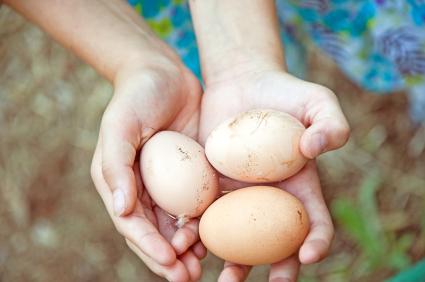
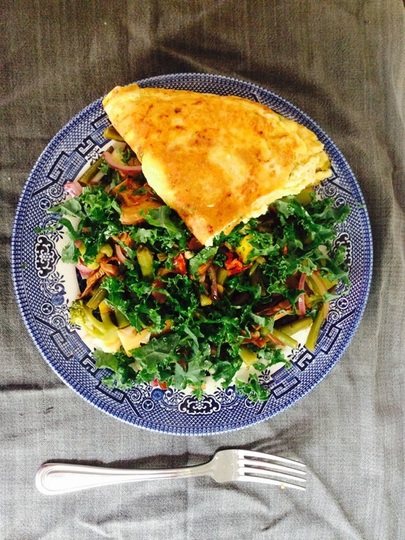
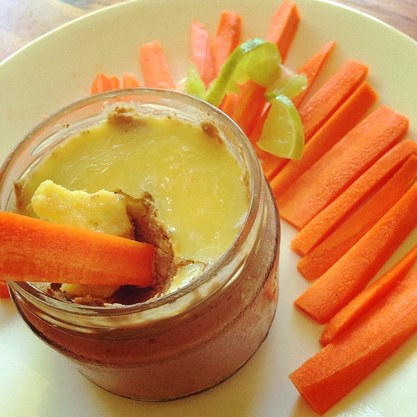
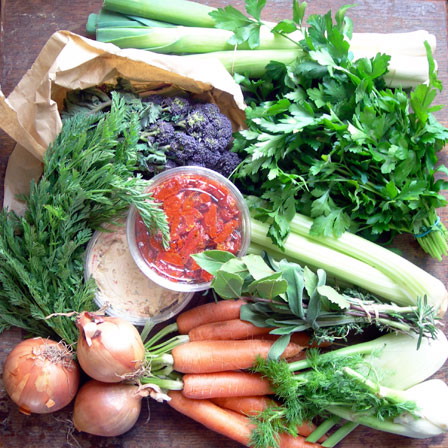
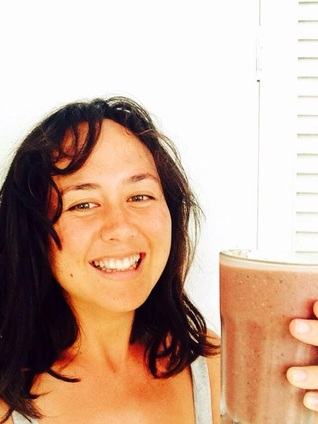
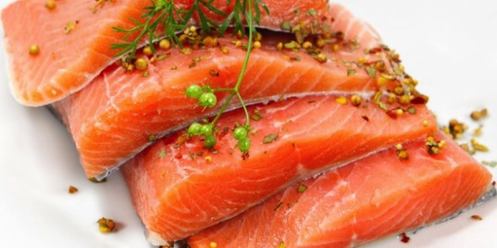
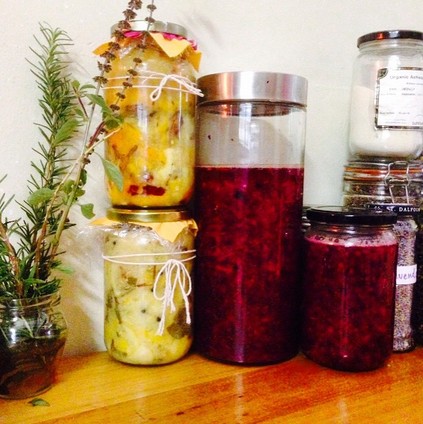
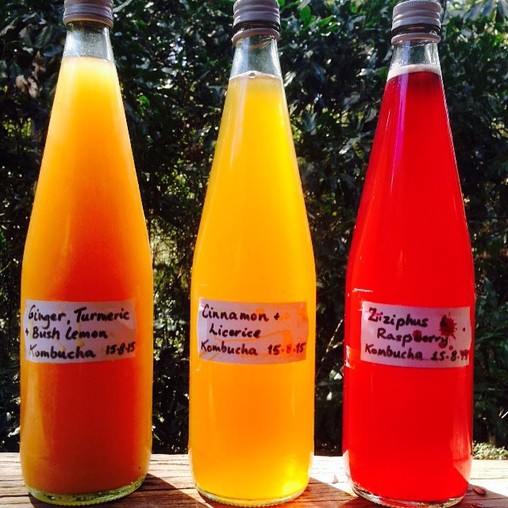


































 RSS Feed
RSS Feed



